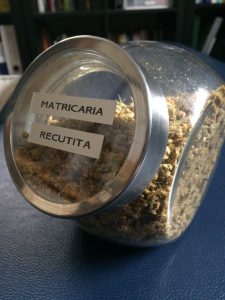 I preface this article with a brief explanation on Chinese medicine. In Chinese medicine, many of the pathologies are based on external influences. For example, if one is out in the rain too long, they could develop excess dampness internally leading to such symptoms as arthritis, a cold or a sore throat. As such, food is very important in combating these different external forces. With that being said, it is important to understand which foods are hot, cold, dry, or damp in nature and to consume them in a balanced way. In seasons such as summer, it is important to consume more foods that are cool or cold in nature to combat the external effect of heat on the system. The food list below is not explicit, but does give a good idea as to some different foods one can incorporate into their diet to stay cool during warmer temperatures.
I preface this article with a brief explanation on Chinese medicine. In Chinese medicine, many of the pathologies are based on external influences. For example, if one is out in the rain too long, they could develop excess dampness internally leading to such symptoms as arthritis, a cold or a sore throat. As such, food is very important in combating these different external forces. With that being said, it is important to understand which foods are hot, cold, dry, or damp in nature and to consume them in a balanced way. In seasons such as summer, it is important to consume more foods that are cool or cold in nature to combat the external effect of heat on the system. The food list below is not explicit, but does give a good idea as to some different foods one can incorporate into their diet to stay cool during warmer temperatures.
- Apple
- Banana
- Barley
- Cucumber
- Eggplant
- Eggs
- Grapes
- Grape fruit
- Ice
- Kelp
- Lettuce
- Spinach
- Mango
- Melon
- Mushroom
- Pear
- Peppermint
- Peppermint Tea
- Plum
- Radish
- Sesame oil
- Sorbet
- Soy
- Tangerine
- Tofu,
- Green tea
- Water chest nut
- Water melon
- Yogurt
In addition to these foods, some other ways of eating food that may help to beat the heat in the summer include eating raw fruits and vegetables rather than cooking them.
One important thing to note with this list is that just because there is a food item on this list does not mean everyone should eat these foods. Though it is warm out, not everyone needs these cooling foods. This is where an appropriate assessment by a Naturopathic Doctor would be warranted. In addition, eating certain foods can cause harm to certain individuals, and again may require guidance from a Naturopathic Doctor.
Have you benefited from reading this blog? Know someone that would benefit as well? Share, Like, Comment, or Tweet this article, and let me know what you think.
Some of the information provided above may not be appropriate for everyone, please consult with your doctor before trying any of the above. If you are interested in Naturopathic Medicine and wanting a different approach to your health care needs, contact Dr. Elisha Cook ND by calling 519-537-7058 and book your appointment today!
References:
http://www.pingminghealth.com/article/581/warming-and-cooling-characteristics-of-common-foods/



